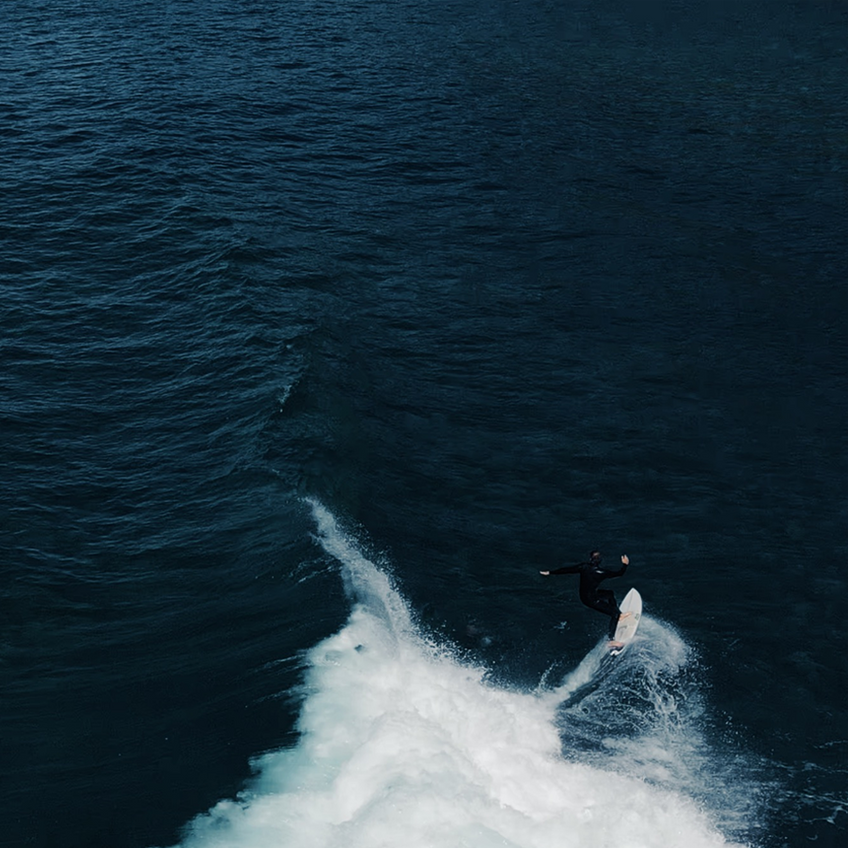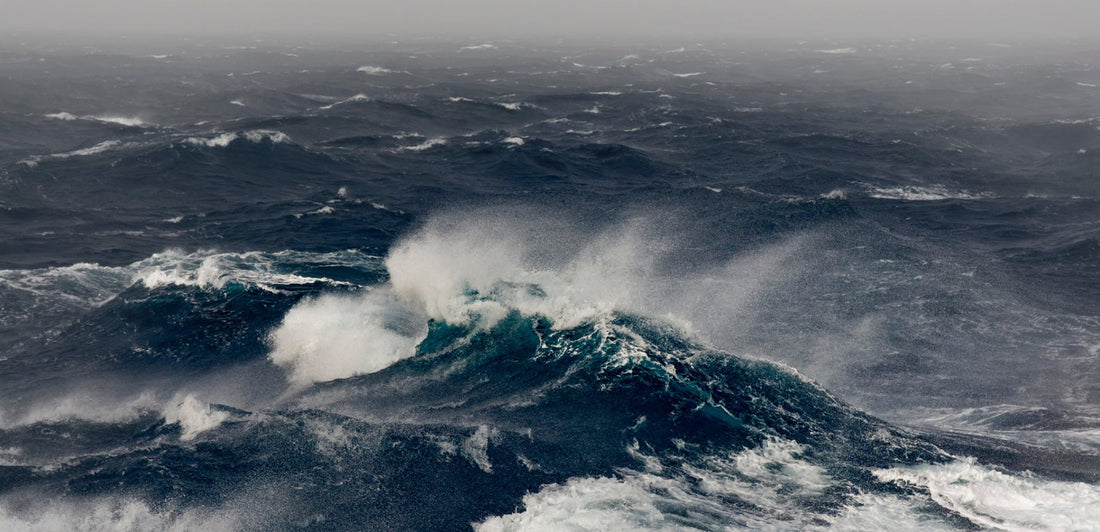What if we told you there were 5 simple ways you could tweak your daily routine in a way that means you play a major part in caring for the ocean? You would wanna read on, right?!
1. Change Your Search Engine
This might seem like a strange one to start with, but what is for sure is that it’s by far the easiest. While the biggest search engines on the planet, including the big G, are what people usually use to search for “sustainable clothing” or “eco-friendly fashion”, there are others out there whose profits don’t go to wealthy owners or shareholders, but directly to mother nature herself.

Perhaps the best example of this is Ecosia, a search engine that uses all profits to plant trees in areas of the world that need them most. At the time of writing the company has enabled the planting of an incredible 213,893,442 trees, which help absorb C02, giving the ocean a rest from having to absorb it all. Just make them the default search engine in your browser and every time you search for a sustainable t-shirt or eco-friendly pants you can rest safe knowing that your curiosity just helped plant a tree. Another great thing about Ecosia is that it helps you shop more sustainably online. Look out for the green leaf next to the brands that Ecosia have identified as genuine sustainable fashion options.

2. Shop Ocean-Friendly Clothing
SHAMELESS SELF PROMOTION ALERT! Yes, despite it being 2024 more people than ever are buying into the race-to-the-bottom that is fast fashion, laying waste to the ocean in the process. By shopping at a premium eco fashion brand like TWOTHIRDS you ensure that your sustainable clothes will last, remain in style for longer, and be crafted from the lowest impact fabrics, yarns and dyes.

If part of your routine is coming home to four sad fast fashion packages every evening, we promise you’ll feel so much better about yourself if you purchase a sustainable dress via our PRE-ORDER system – let the anticipation and excitement build, and then receive one perfect (plastic-free) package of slow fashion goodness, all safe in the knowledge that only the bare minimum of natural resources were used.
3. Ditch Cars, Rent Bikes
TWOTHIRDS is of course based in Barcelona, a city that has gone out of its way in recent years to make room for bikes at the expense of gas guzzling, space robbing cars. You can now glide from district to district on smooth bike lanes, waving to fellow wearers of TWOTHIRDS’ sustainable sweaters or eco-friendly bomber jackets.

While riding bikes is nothing new, what is revolutionary is the way people in Barcelona own their bikes. Companies like Kleta and Swapfiets charge a monthly subscription fee in return for a bike, free repairs and theft insurance. This means that rather than new bikes or second hand bikes being bought privately – before then being binned or abandoned – bikes are cared for and kept in use for longer, both to the benefit of riders and the companies involved. Of course, if you live in a hilly area there are also electric bikes available to make sweaty inclines easy to conquer.
4. Adopt a Zero-Waste Mentality
There is no shortage of companies out there both in the sustainable fashion space and beyond that try to convince consumers that mass consumption and waste is okay because we can just recycle everything. While this would be wonderful, unfortunately it is a long way from the truth. In a recent OECD report it was found that only 9% of all plastic waste is actually recycled.
In a bid to counter misinformation spread by advocates of recycling as a total waste solution, many people are instead harnessing degrowth or post growth principles to advocate for a far simpler solution: less packaging. One of the best ways to prevent plastic waste polluting the sea is to eradicate as much packaging as possible from your daily routine. Avoiding supermarkets whenever possible is a good start, as well as packaging-laden takeaways, and only buying sustainable knits and eco-friendly jackets that you know will serve a purpose and last a lifetime.
5. Leave Fish in the Sea
A lot is often made of the impact that a shift away from meat consumption can have on the environment, but less is said about fish. Perhaps this is because fish is seen as a healthier food, coming without the unwanted health downsides that particularly red meats can have. 
The problem is that most of the fish we consume is deeply problematic. Fish caught in the wild are often caught using what’s known as bottom trawling, whereby huge nets scour the seabed, catching fish but also destroying whole ecosystems. Farmed fish are more easily caught, but suffer from infections and diseases due to the way they are fed and enclosed in small spaces. Fish farms counter this by pumping fish with antibiotics, which can then leach into the surrounding natural ecosystems, causing huge amounts of harm.
How to stop all this? Eat less fish, and instead celebrate these beautiful sea creatures with our ocean-inspired sustainable knits or eco-friendly tops.








